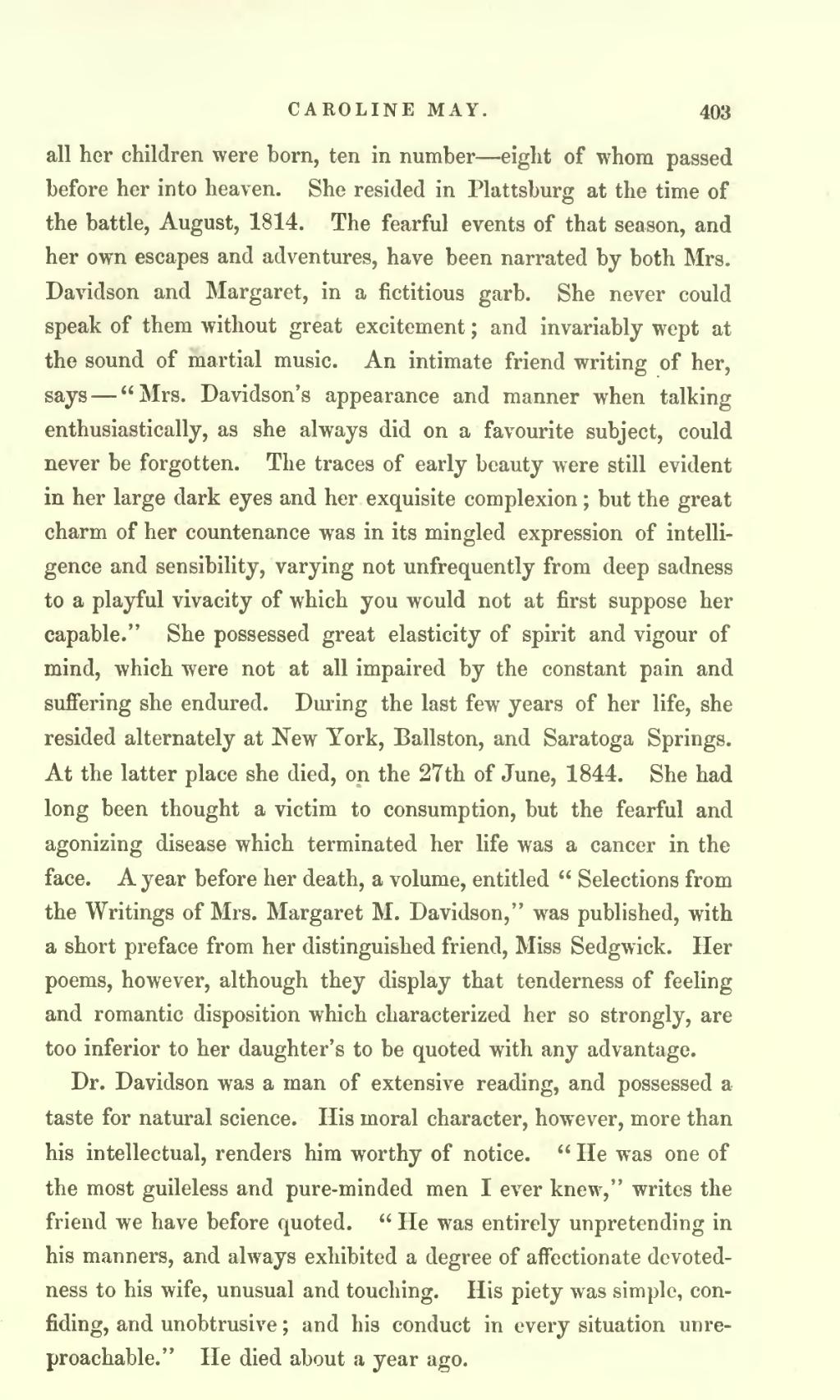all her children were born, ten in number—eight of whom passed before her into heaven. She resided in Plattsburg at the time of the battle, August, 1814. The fearful events of that season, and her own escapes and adventures, have been narrated by both Mrs. Davidson and Margaret, in a fictitious garb. She never could speak of them without great excitement; and invariably wept at the sound of martial music. An intimate friend writing of her, says—“Mrs. Davidson’s appearance and manner when talking enthusiastically, as she always did on a favourite subject, could never be forgotten. The traces of early beauty were still evident in her large dark eyes and her exquisite complexion; but the great charm of her countenance was in its mingled expression of intelligence and sensibility, varying not unfrequently from deep sadness to a playful vivacity of which you would not at first suppose her capable.” She possessed great elasticity of spirit and vigour of mind, which were not at all impaired by the constant pain and suffering she endured. During the last few years of her life, she resided alternately at New York, Ballston, and Saratoga Springs. At the latter place she died, on the 27th of June, 1844. She had long been thought a victim to consumption, but the fearful and agonizing disease which terminated her life was a cancer in the face. A year before her death, a volume, entitled “Selections from the Writings of Mrs. Margaret M. Davidson,” was published, with a short preface from her distinguished friend, Miss Sedgwick. Her poems, however, although they display that tenderness of feeling and romantic disposition which characterized her so strongly, are too inferior to her daughter’s to be quoted with any advantage.
Dr. Davidson was a man of extensive reading, and possessed a taste for natural science. His moral character, however, more than his intellectual, renders him worthy of notice. “He was one of the most guileless and pure-minded men I ever knew,” writes the friend we have before quoted. “He was entirely unpretending in his manners, and always exhibited a degree of affectionate devotedness to his wife, unusual and touching. His piety was simple, confiding, and unobtrusive; and his conduct in every situation unreproachable.” He died about a year ago.
